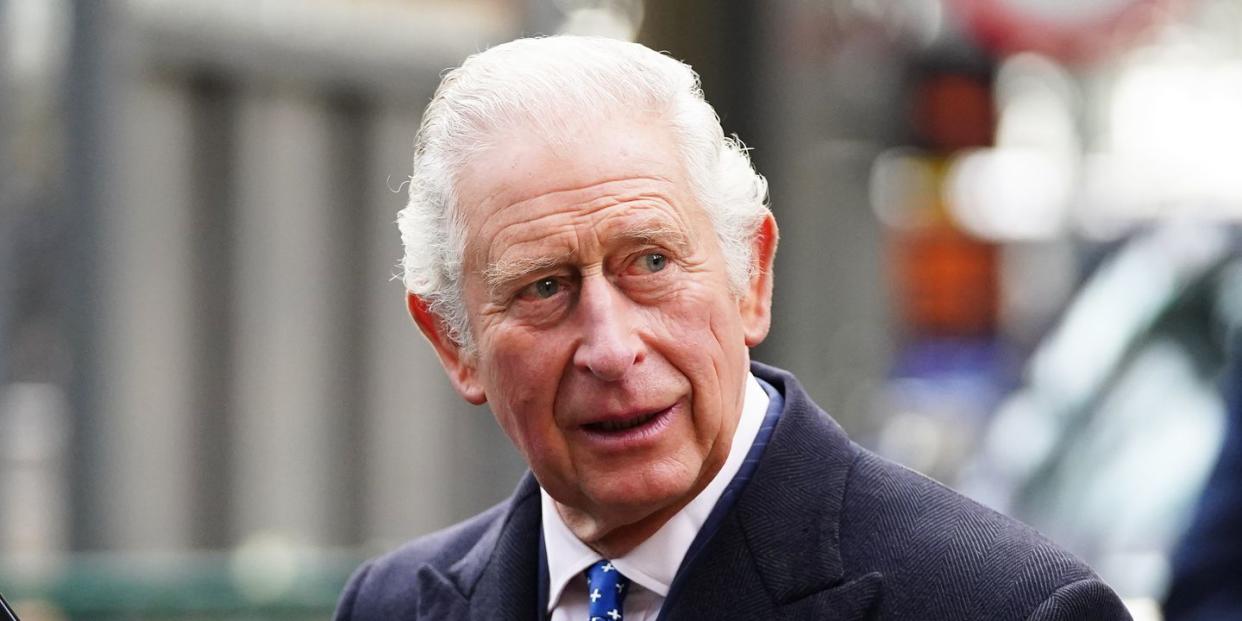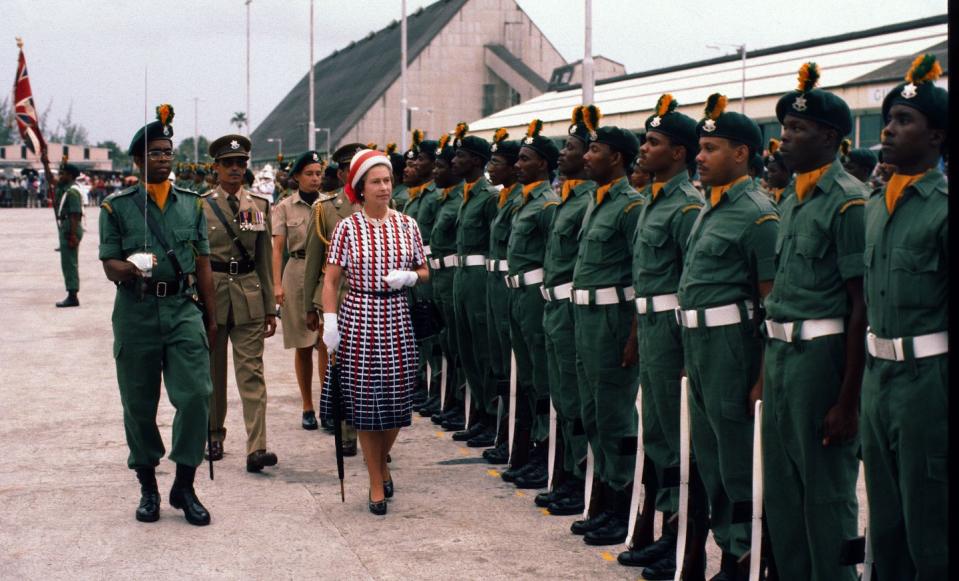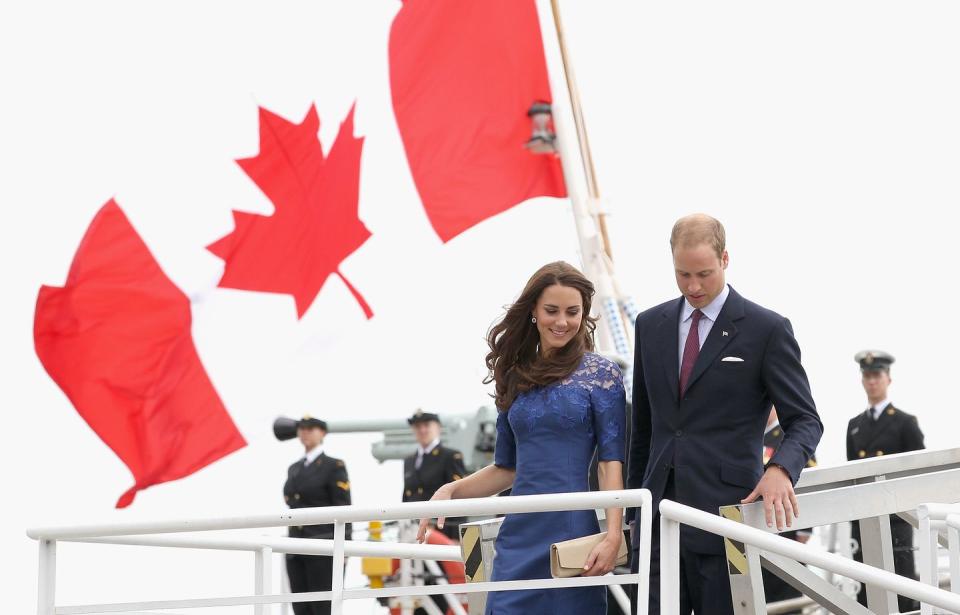All About Prince Charles's Visit to Barbados as the Country Cuts Ties With The Monarchy

Prince Charles will fly into Barbados late Sunday for a short solo visit to attend Monday’s ceremony as the country declares itself a republic. The two-day trip will also see him carry out a brief program of engagements before returning home to the UK on Tuesday. It may be a fleeting visit, but it carries huge significance, with the Prince being present for the moment Barbados removes the Queen as head of state, meaning he will also no longer ever hold that role. Here, we take a look at what it all means and what will happen during his stay.
What does Barbados becoming a republic mean?
This is a landmark moment for Barbados as it marks the full cutting of ties with Britain after centuries of various forms of rule. “The time has come to fully leave our colonial past behind,” Barbados Governor General Dame Sandra Mason said when the intention to become a republic was announced in September 2020. Dame Mason, who as Governor General was the Queen’s representative in the country, has been elected as the first ever first President of Barbados and will be sworn in during the celebrations.
The British first arrived in Barbados in 1625 when James I was king, and the island was colonized two years later in 1627. From the 17th century, enslaved people were transported from West Africa and this continued until the beginning of the 19th century. Slavery was abolished in 1834, and Barbados remained a British colony until 1961 when the it attained full internal self-government, and full independence was gained on November 30, 1966. However, the Queen remained head of state, making the country a Commonwealth Realm, until now.
In addition to the huge symbolism of the change, practical alterations, such as the word “royal” being removed from national institutions in Barbados and people in certain roles no longer having to swear allegiance the monarch, will also take place.

Why was Prince Charles invited when the country is severing ties with the monarchy?
An invitation was extended to the Prince to be a guest of honor at the celebrations from the Prime Minister of Barbados, Mia Mottley. Clarence House announced that he was invited “as future Head of the Commonwealth,” which Barbados will remain a member of. Of course, the current head of the Commonwealth—the Queen—no longer travels overseas.
However, Barbados Today has reported there could be protests against the Prince’s attendance. “If you are breaking with the monarchy, then you cannot invite them to be part of that process…It is a contradiction,” General Secretary of the Caribbean Movement for Peace and Integration David Denny told the publication. International Relations Specialist at the University of the West Indies, Dr. Kristina Hinds, also told Barbados Today that she thought it was “inappropriate” to give the Prince the Order of the Freedom of Barbados, the country’s second-highest honor, which he is scheduled to receive as part of the proceedings. “The British Royal family is a source of exploitation in this region and many other parts of the world and as yet, they have not offered a formal apology or any kind of repair for past harms. So I don’t see how someone from the family can be given the Freedom of Barbados Award,” Dr. Hinds told the publication.
However, the decision to include the Prince has been described by Barbados Minister of Tourism and International Transport, Senator Lisa Cummins, as being about “diplomatic relations.”
“We are making a signal to the world that this transition we are making is without rancour, it is without angst, without acrimony and they are here to say 'we support what you are doing and we are diplomatically recognising that,’” she said in response to the criticism.
What will happen during the celebrations?
The transition to a republic will take place on the 55th anniversary of Barbados independence; a date which is already celebrated as a national holiday each year. There have been events throughout the country this month, starting on November 23, which will continue until November 30, including a Parliamentary Debate on the new Charter of Barbados, which was held on November 23 and 24.
The central event which Prince Charles will attend to declare Barbados a republic and mark the inauguration of the President of Barbados will be at National Heroes’ Square in Bridgetown, beginning at 11 p.m. local time on November 29. Barbadians have been encouraged to wear their national colors and “truly celebrate the spirit of this historic time and celebrate ourselves for this major step we’re taking as a country.”
What could this mean for other countries who have the Queen as head of state?
Once Barbados becomes a republic there will be 15 Commonwealth Realms left in the world. The UK is one and the 14 others are: Antigua and Barbuda; Australia; The Bahamas; Belize; Canada; Grenada; Jamaica; New Zealand; Papua New Guinea; Saint Kitts and Nevis; Saint Lucia; Saint Vincent and the Grenadines; Solomon Islands; and Tuvalu.

There used to be many more, but the last country to change status from realm to republic was Mauritius in 1992. Before that, countries including Guyana, Trinidad and Tobago, Dominica, and Sierra Leone all removed the Queen as head of state in the 1970s.
In 2012, Jamaica’s then Prime Minister Portia Simpson-Miller stated her country would move to cut ties with the Queen. This has yet to to happen but the debate continues, with the country’s current opposition leader Mark Golding telling The Independent earlier this year that the Queen should be removed as head of state. A referendum on the subject in Australia in 1999 saw a narrow victory for keeping the British monarch.
One thing that may affect the pace of any change in the remaining Commonwealth Realms is the legal requirements that need to be satisfied for different countries to become a republic. While the decision was voted through by Parliament in Barbados, some countries must take the decision to a public vote in order to make a change.
You Might Also Like

